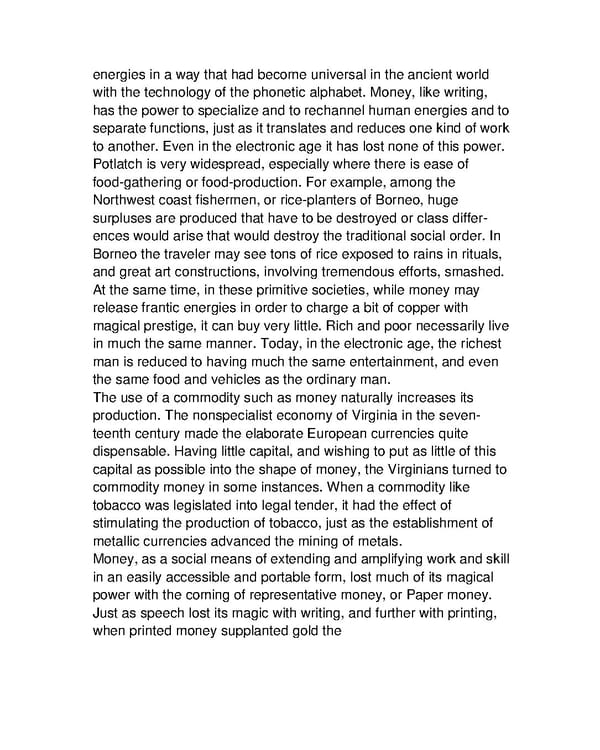energies in a way that had become universal in the ancient world with the technology of the phonetic alphabet. Money, like writing, has the power to specialize and to rechannel human energies and to separate functions, just as it translates and reduces one kind of work to another. Even in the electronic age it has lost none of this power. Potlatch is very widespread, especially where there is ease of food-gathering or food-production. For example, among the Northwest coast fishermen, or rice-planters of Borneo, huge surpluses are produced that have to be destroyed or class differ- ences would arise that would destroy the traditional social order. In Borneo the traveler may see tons of rice exposed to rains in rituals, and great art constructions, involving tremendous efforts, smashed. At the same time, in these primitive societies, while money may release frantic energies in order to charge a bit of copper with magical prestige, it can buy very little. Rich and poor necessarily live in much the same manner. Today, in the electronic age, the richest man is reduced to having much the same entertainment, and even the same food and vehicles as the ordinary man. The use of a commodity such as money naturally increases its production. The nonspecialist economy of Virginia in the seven- teenth century made the elaborate European currencies quite dispensable. Having little capital, and wishing to put as little of this capital as possible into the shape of money, the Virginians turned to commodity money in some instances. When a commodity like tobacco was legislated into legal tender, it had the effect of stimulating the production of tobacco, just as the establishment of metallic currencies advanced the mining of metals. Money, as a social means of extending and amplifying work and skill in an easily accessible and portable form, lost much of its magical power with the coming of representative money, or Paper money. Just as speech lost its magic with writing, and further with printing, when printed money supplanted gold the
 Understanding Media by Marshall McLuhan Page 149 Page 151
Understanding Media by Marshall McLuhan Page 149 Page 151